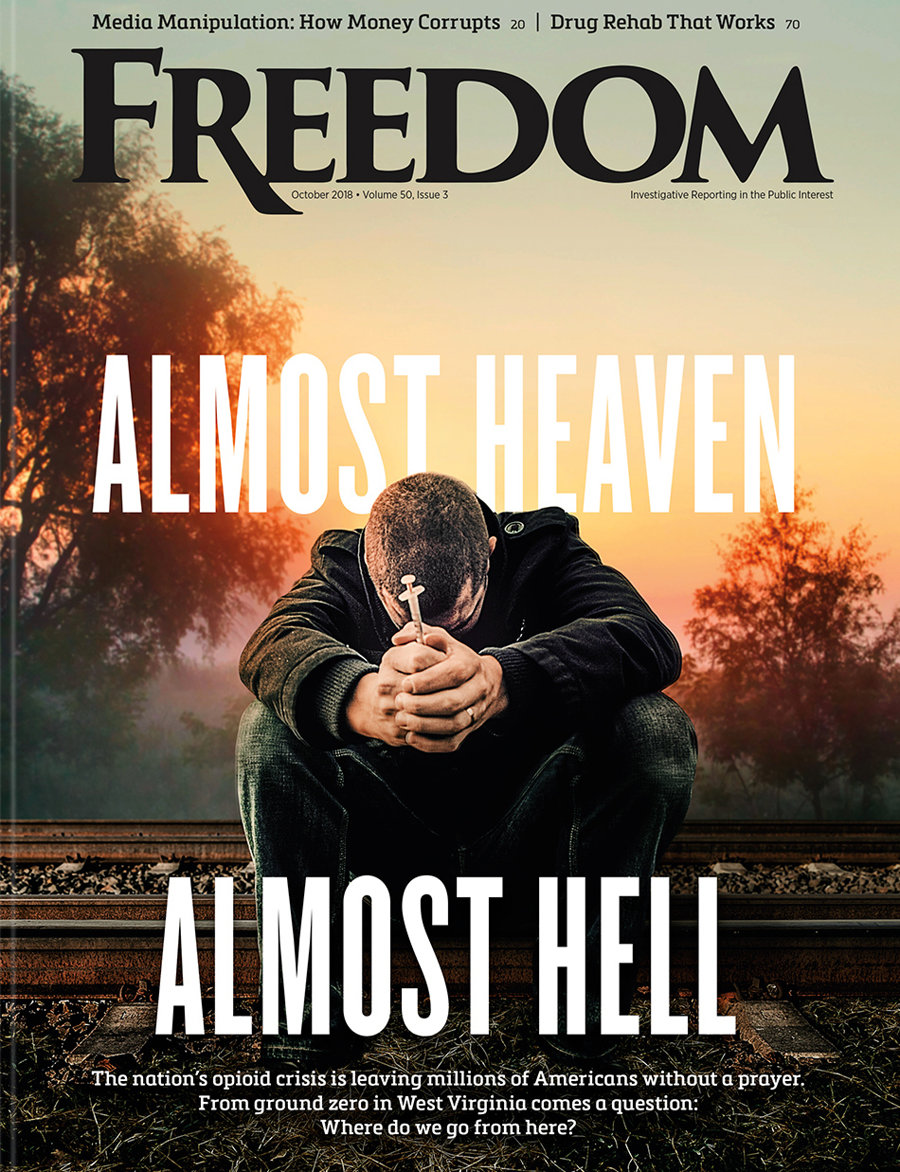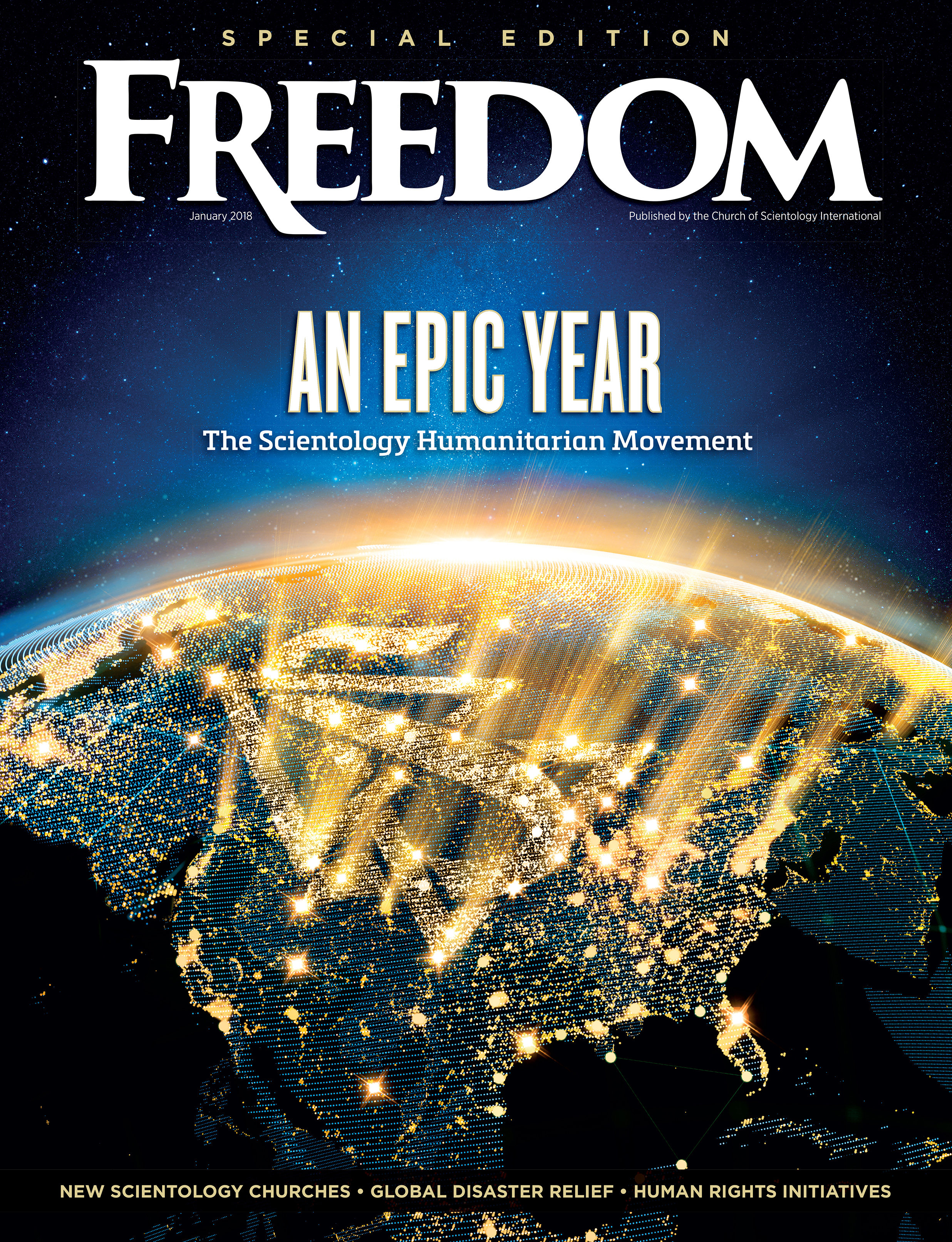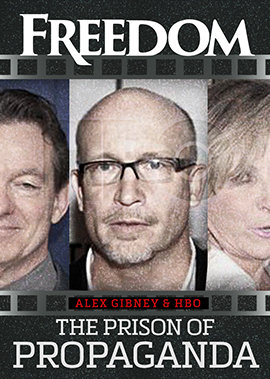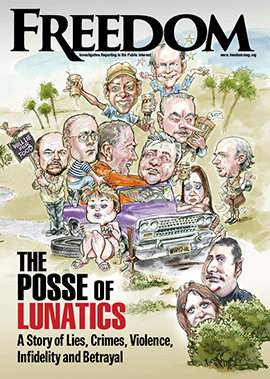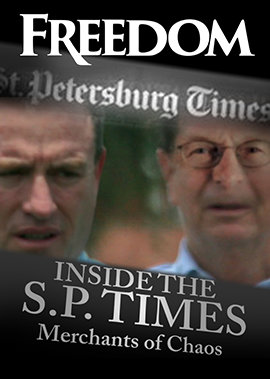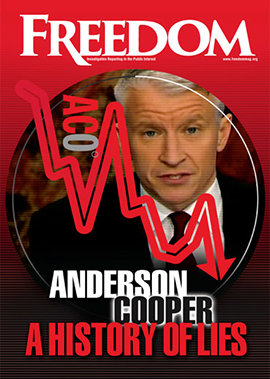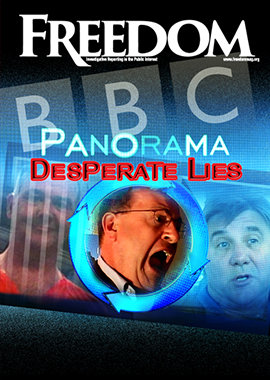What Aslan got right:
“Scientology, it is arguably the most successful new American religion of the 20th century.”
What Aslan got wrong?
A lot.
Start with Aslan’s claim that “When I decided that I was going to do an episode on Scientology I reached out to the church. I wanted them to be a part of it, to have an opportunity to have their voices heard.”
Actually, two years ago, Aslan and his producer requested permission of the Church to allow Aslan to attend Scientology services and film private practices. On July 28, 2015, a Church spokesperson Karin Pouw politely and respectfully declined, stating:
Subject: Re: Reza Aslan Request
Date: Tue, 28 Jul 2015 10:04:56 -0700
“…we cannot participate in a show of this nature. Participation in our religious services can only be for the sole purpose of one’s own spiritual development. We make extensive written and audio-visual material available on our website, www.scientology.org, so that prospective parishioners know what they will be experiencing. But the experience itself must remain personal. Thus, we never permit journalists (or those acting in that capacity) to embed themselves in our services on-camera, such as is being suggested here.”
As an alternative, she offered to extensively brief Aslan on Scientology, supplying him with ample materials and to meet with him. That resulted in meetings with Church officials and a tour of one of the Scientology Churches in Los Angeles. As an example, Church official Greg LaClaire on September 18, 2015, met with Aslan at a Los Angeles Church and answered questions about the religion for more than an hour. Aslan thanked him in an email:
On 9/23/2015 3:40 PM, Reza Aslan wrote:
“Greg
“Once again, thank you for the time Friday night. Thanks especially for so patiently going through the diagram with me. As I said, I have read a ton about Scientology’s principles and beliefs and spoken to a bunch of people but I have never had it explained to me so simply and elegantly. Thanks for being open to me as well. I felt very warm and welcomed.”
Aslan in his program makes it sound like none of that happened, and that he had no access or cooperation at all.
Instead, he sought out a handful of expelled former members scattered like leaves in the wind who he would represent as violating the Church’s intellectual property rights to profit from their unauthorized activities. These heretical individuals typically operate out of the living rooms or dining room tables of ramshackle homes. They are not Scientology by any definition.
By not informing viewers of these facts, Aslan misled them. Aslan also misled viewers by inaccurately conveying that a small smattering of individuals operating by the seat of their pants equates to some form of a “reformation” in Scientology. Their numbers are minuscule – three small houses – which CNN and Aslan laughably compared to the Protestant Reformation. A more honest program would have revealed that the individual most identified as the leader of this so-called “movement” called it quits years ago, labeling the entire “movement” as a “failed experiment.”
A few rogue individuals claiming to be Scientologists doesn’t make a religion or even a movement. Moreover, by showcasing them and grossly exaggerating their presence CNN misinformed viewers on actual Scientology. CNN showed a smidgen of fringe individuals, representing it as “true” Scientology when it’s anything but that.
The difference between the alleged “auditing” Aslan showed and actual auditing is that real auditing is precise, thoroughly codified and has exact procedures. There are no variables in the technology of auditing, no random results of haphazard applications. Auditing is not improvised, vague, free association. Each process is exact in its design and in its application, to attain precise results when correctly ministered. A person trained and qualified to better individuals through auditing is called an auditor, which is a highly trained minister or minister-in-training of the Church of Scientology.
Auditing uses processes—exact sets of questions asked or directions given by an auditor to help a person locate areas of spiritual distress, find out things about themselves and improve their condition. There are many, many different auditing processes and each one improves the individual’s ability to confront and handle aspects of their life. When the specific objective of any one process is attained, the process is ended and another can then be used to address a different part of the person’s life.
An unlimited number of questions could, of course, be asked, which might or might not help a person. The accomplishment of Dianetics and Scientology is that L. Ron Hubbard isolated the exact questions and directions to bring about spiritual freedom. The questions or directions of the process guide the person to inspect a certain part of their existence. What is found will naturally vary from person to person, since everyone’s experiences are different.
Contrast that with what one sees in the demonstration of “auditing” Aslan presents. It’s anything but orthodox. In fact, it’s 180 degrees from actual Scientology services, which are precise and exact. Anyone can see Scientology auditing at www.scientology.org. The video can also be seen here:
The real story is that the Church of Scientology has been experiencing a renaissance over the last decade with greater expansion than in the previous 50 years combined. There is no independent movement, and a handful of people operating out of living rooms stealing Church intellectual property doesn’t make a religion.
The Scientology religion is thriving. In the last year alone, new Churches have opened in Auckland, Budapest, Sydney, Atlanta, Harlem, San Diego and, on March 19th, in the San Fernando Valley, California—adding to the more than 50 new Churches opened in recent years. There are now 11,000 Churches, missions and affiliated groups operating in more than 150 nations on five continents.
Church-sponsored humanitarian and social programs touch lives in nations around the world. Scientologists celebrate the fact that Scientology Scriptural materials are now available in up to 50 languages and are disseminated and studied more than ever.
For information on the Scientology religion, visit www.scientology.org.


















